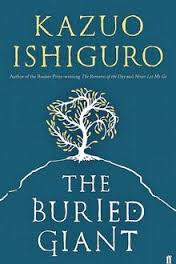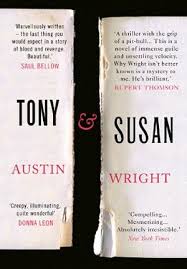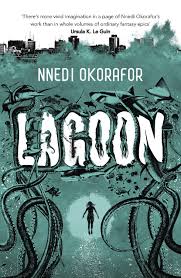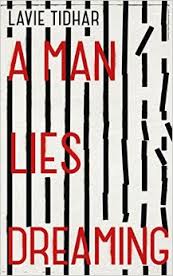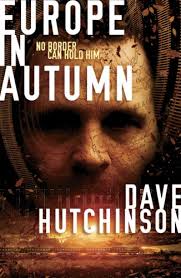We had friends to stay a weekend or two back. Most of our conversation, unsurprisingly, revolved around books. During the course of our discussions, one of our friends mentioned that she hadn’t read any horror fiction in quite a while and felt like getting back into it. “I’m not sure where to start, though,” she said. “What would you recommend?”
I relished her question, not just because it offered me the opportunity to make a list (I’m always up for that) but because when considered side-by-side with science fiction, horror is undoubtedly the Cinderella genre. A lot of the discussions and arguments I take part in on the subject of horror tend to centre around the question ‘is it even worth reading?’ Even if they don’t care for science fiction particularly, most people are able to gain a sense of why others might enjoy it and find it relevant – it speculates about the future, it deals with pressing social or environmental concerns, it explores the possibilities of the human mind, man and machine, computers, life on other planets. Horror though, what’s that about? Monsters, and murderers, people getting themselves killed in disgusting ways.
That’s rubbish, of course, as much of a tired and inaccurate shorthand as the one about science fiction being about squids in space (and no, I’m not having a go at Margaret Atwood here. Most everything Atwood’s written in the past decade has been SF, her next novel is SF, she’s one of the most important practitioners of SF currently writing – who gives a stuff if she got a bit muddled over our esoteric terminology?) Horror literature goes back as far as science fiction, possibly further (and if you’re going by the Gernsback dictum, definitely further). It’s not just a matter of who got there first, though. These two strands of literature are different from one another in fundamental ways. There’s a stimulating and persuasive argument around this to be found in John Clute’s mini-masterpiece The Darkening Garden, the ‘short lexicon of horror’ now happily available again as part of Clute’s most recent collection of essays, Stay. Even if you don’t agree with his thesis, it’s a fascinating read, one that will get you thinking and questioning yourself about exactly what horror literature is, and what it means to you.
For myself, I would argue that horror literature is, above all, the most deeply and strikingly personal of the genres. Horror is very revealing, not just of the writer, but of the reader, too. Not just regarding questions of what you might be afraid of, but what aspects of yourself might be frightening, or hidden. Horror literature, as works by H. P. Lovecraft or Ramsey Campbell powerfully demonstrate, is not revealed through a series of brutal actions, but through imagery, allusion, psychology, a slanted and peculiar vision, a personal worldview. There’s nothing like reading or writing horror for putting you in the zone with yourself.
The death knell for horror literature is sounded roughly once every decade. But although the fashion for vampires or zombies (bless ’em) may come and go, horror literature lurks, stalwartly (can you lurk stalwartly? I’m going to go with a yes) on and always will. So long as a writer can sit alone in a room and then, for no reason at all, start worrying about what might be on the other side of the door, it’s here to stay.
Which still leaves us with the question of where to start with reading it. I was going to go with a top ten books, then realised how impossible that would be – way too restrictive – and so I’m going with ten favourite writers instead. There may yet be overspill. And no need to mention that this list is highly personal. I’ve tended to steer away from classic weird – Poe, Stoker, Machen, Blackwood, even my beloved Aickman – because there’s plenty of opinion and top ten lists built around these writers already. I’m concentrating on what’s being written now, and on the writers I personally return to, again and again. Horror was my first love. (And in no particular order) here’s why:
Joyce Carol Oates. Oates’s understanding of the gothic is sensitive, articulate and refined. Her enthusiasm for the gothic is brutal, breathtaking and no-holds-barred. The thing with Oates is that she is never going to write hackneyed, generic horror fiction – and yet boy, can she deliver on the ‘yeuccchhh’ factor when she’s in the mood for it. I’ve read a lot of horror fiction, and I mean a lot, and the closest I’ve come in recent years to not being able to finish a horror novel through sheer ‘no, this is too much’ discomfort with what I was reading was JCO’s Stoker-Awarded short novel Zombie. Do soldier on with it though, because it’s brilliant. There are at least three JCO short fiction collections devoted to horror stories of one stripe or another – I’d recommend any of them. For those who want to get stuck into a real JCO marathon, I’d recommend her masterpiece Bellefleur, her luscious, gorgeous, immortal take on the vampire novel, and The Accursed, which will reward your commitment – this is a long book and a tough climb in places – by giving you something lasting and extraordinary, including a Lovecraft-influenced chapter of sheer virtuosity.
Caitlin R. Kiernan. I first came across Kiernan’s work in a Best New Horror anthology towards the end of the nineties, and knew from the first moment of reading her that this was the kind of horror literature I had been looking for. If I were restricted to bringing one horror writer’s oeuvre to a desert island, it would be Kiernan’s. Her obsessive, inward-looking narrators, her natural instinct for the weird and above all, the eloquent beauty of her language makes Kiernan, for me, one of the most important horror writers of our time. I would recommend The Drowning Girl as the most accurate rendition of what it might actually feel like to be haunted, as well as the greatest horror novel of the last ten years. The Red Tree is almost as good. Or any of her short fiction, really.
Ramsey Campbell. It’s difficult to overstate the importance of Ramsey Campbell, both to me and to British horror fiction generally. For anyone interested, I wrote about my own discovery of Ramsey’s fiction in a short essay, Rediscovering the Fantastic. But for anyone starting out on their own journey, I would say that Ramsey Campbell is probably the most important post-war British writer of horror fiction, and that if you have any interest in the horror genre at all you need to read at least one of his novels. Campbell’s emphases lie firmly on character and place – specifically his native Liverpool – and it is his understanding and empathy towards those characters that make us care so much, as readers, about what happens to them. Which, be warned, is mostly not good. My favourite Campbell probably remains Midnight Sun, but The Long Lost and Incarnate are pretty special too, and as the first Campbell I ever read, The House on Nazareth Hill has a preferred place in my heart. For short fiction, go with Ghosts and Grisly Things, one of Campbell’s more recent collections and every story a classic. And if you’re after more material about horror fiction, Ramsey’s collection of essays and reviews, Probably, is essential reading.
Stephen King. It would be easy not to include Stephen King in this list. Everyone’s heard of King, no need to talk about him, right? Wrong. King really is too important to ignore. More than that, he’s too much of a pleasure to ignore. I would count Stephen King as the writer who, for me, has most consistently that most elusive quality: page-turnability. King can tell stories like no other in my universe, and I love his voice. Favourites? I’m going to be contentious here and suggest The Tommyknockers, which scared the shit out of me for some reason (most diehard fans consider it ‘bad King’), The Shining (of course) and my personal favourite Hearts in Atlantis. Another essential read from King is the non-fiction Danse Macabre, his personal history of twentieth-century horror literature and film. It’s as readable as any of his novels, packed with personal insights and wonderful reading suggestions. A kind of horror bible!
And while we’re on the subject of King, don’t forget to sample the work of his son, Joe Hill. Hill broke into the genre with his extraordinary debut collection Twentieth Century Ghosts and I bet his dad was damned proud. You can see the family relationship, if you’re looking carefully, and Hill has certainly inherited his father’s raw storytelling talent. But Hill’s stories are very much his own – there’s a bizarreness, a quirky twistedness to them that’s very different from King Sr. I ripped through Twentieth Century Ghosts in a day and can’t recommend it highly enough.
Kathe Koja. I’d been meaning to read Kathe Koja for ages. Then towards the end of last year, I read her reissued first novel The Cipher and wondered why I’d waited so long. I loved everything about this book: bizarre, Roadside-Picnic-like scenario (the entire novel is about a hole in the floor, basically), spiky, difficult characters (and that’s putting it kindly) and throughout a kind of obsessive, steadily worsening compulsion to do the unwise thing. I love novels with a small cast of interesting characters that hint at larger issues beyond the book’s parameters, and The Cipher is this kind of novel, exactly. I love Koja’s writing, too – there’s an urgency to it, a flickering darkness, a unique disquiet. I’ll definitely be reading more of her. Read this book!
Robert Shearman. I happen to think that Rob is one of the most talented writers working in Britain at the moment, and as a horror writer his unique vision is exactly what the genre has been waiting for. Rob’s stuff is so much his own it’s difficult to find anyone to compare him with. As a writer who first found his feet in the theatre, he is a master of dialogue, of conflict, of dramatic tension. But there’s more – his ideas are just so off the wall, so delightfully surprising and often so downright scary you’re left almost literally biting your nails in anticipation of what might happen. But then, Rob’s stories are often laugh-out-loud funny, too. Start with Remember Why You Fear Me and They Do Things Different There. Inimitable, and readable verging on addictive.
Otsuichi. I can’t remember now how or where I first heard about Otsuichi’s first collection to be translated into English, Zoo, but I’ll never forget the thrill of delight I experienced when I read that first story and realised how brilliant it was. Another truly unique voice, Otsuichi’s stories have a deadpan, ironical cast to them that I find irresistible. More irresistible still is his prose, matter-of-fact and weirdly poetic at the same time. One of the things I love so much about Japanese horror cinema is that it doesn’t in the slightest rely on familiar Hollywood tropes, and Otsuichi’s fiction has that same offbeat edginess about it.
Helen Marshall. When I read Helen’s first collection, Hair Side, Flesh Side, I found it so complete and so achieved I could hardly believe it was the work of a debut writer. Her new collection, Gifts for the One Who Comes After, is even better, and it’s wonderful to know she has a novel in the works. These stories are dark – they’re full of thwarted passions and untimely deaths – but Marshall’s prose is so rich and so detailed, so beautiful, that the effect never becomes oppressive. There’s almost a Clive Barker-y feel to some of her writing – see ‘The Mouth, Open’ from Hair Side, Flesh Side, for example – but without the rampant bloodlust! (Oh, and talking of Barker, EVERY horror fan MUST read The Books of Blood – possibly the most important set of horror stories since M. R. James’s ghost stories and still astonishing in their power thirty years after they were first published.)
Joel Lane. Joel’s stories were a revelation to me when I encountered them, first through Year’s Best anthologies, and then in the magazine The Third Alternative. Joel was in the vanguard of the so-called ‘miserabilist’ fiction movement in the 1990s: writers who focussed their attention on what was happening in Britain in the wake of Margaret Thatcher, and who used the language and imagery of dark fantasy and horror fiction to highlight sense of place and the troubled inner states of their protagonists. The way Joel wrote about cities, and memory, and the yearning sense of displacement of the alienated individual within a deconstructed society, spoke to me so eloquently, as did the ambiguous, understated tone of his stories. For me, Joel’s writing will always epitomise the very British horror of my own generation, and I know I’ll feel forever in his debt. Joel’s work is quiet but tremendously powerful. If you can, get hold of his first novel, From Blue to Black, because I think it’s his masterpiece. Otherwise try his collections The Lost District and Where Furnaces Burn.
Kelly Link. This is a cheat really, because Kelly Link isn’t a horror writer as such. But she’s too good not to mention – and her stories do include vampires, and dead people, and plenty of other weirdness that has them leaning towards the dark side more often than not. Kelly Link has spawned a generation of imitators, but no one can touch her for sheer force of imagination and irresistible storytelling. Like King, she’s unputdownable and the only thing wrong with her fiction is that there isn’t enough of it! Start with her new collection, Get in Trouble.
Peter Straub. Straub’s fiction is magisterial in its weight and quality. He is one of those writers who is criminally overlooked by the mainstream, even now. There’s something Oatesian in his ambition, and his novels Ghost Story and Shadowland are landmark works for me. The first Straub I read after Ghost Story was his collection Houses without Doors, and that too is a classic (his story ‘A Short Guide to the City’ is a perennial favourite). One of those writers I could easily immerse myself in for months at a time.
Jeff VanderMeer. As with Kelly Link, VanderMeer isn’t strictly a horror writer, but much of what he does trespasses on horror territory. VanderMeer’s first novel, Veniss Underground, was a kind of warped, noir-future Orpheus and Euridice story. As a debut it still feels monumentally strong, and VanderMeer’s work has only got better since. The denseness and richness of his language is all-absorbing, and of particular interest to me is the way VanderMeer likes to play around with form, whilst never letting go of the drive to tell a story. I would count his most recent work, the three-part Southern Reach trilogy, as one of the most important contributions to speculative fiction so far this century. It’s science fiction, but there’s a horror vibe deep enough to satisfy the darkest appetite.
Livia Llewellyn. Together with Helen Marshall’s Hair Side, Flesh Side, Livia Llewellyn’s collection The Engines of Desire is one of the most impressive horror debuts I’ve ever read. I loved every story in the book, but two of them, the horrific post-apocalypse tale ‘Horses’ and the Lovecraftian novella ‘Her Deepness’ shone out for me not just as brilliant but important. The thing I love most about Llewellyn’s stories – aside from her wonderful use of language, that is – is their willingness to be really bleak. ‘Horses’ is one of the most powerful horror stories I’ve read in this regard – not a single punch pulled, and you end with this sense of ‘fuck’ that doesn’t go away. I do hope that we’ll see a new collection, or even a novel-length work, from Livia Llewellyn in the near future (because I want to read it).
Yoko Ogawa. ‘Long after I realised that my son would not be coming back, I kept the strawberry shortcake we were meant to have eaten together. I passed my days watching it rot. First, the cream turned brown and separated from the fat, staining the cellophane wrapper. Then the strawberries dried out, wrinkling up like the heads of deformed babies. The sponge cake hardened and crumbled, then finally a layer of mould appeared.’ (From ‘Afternoon at the Bakery’ by Yoko Ogawa) Ogawa is the queen of disquiet. As in the above paragraph, she lets ordinary objects and everyday actions take on sinister aspects through context, setting up resonances and metaphors that spread out through the reader’s consciousness like small ripples on otherwise calm water. One of the things I love best about Ogawa is her own fondness for the linked story format, which for me has always been more interesting and flexible than straight linear narrative. Begin with the collection ‘Afternoon at the Bakery’ comes from, Revenge.
Well, I think I count more than ten there, but I warned you there might be overspill. (This list could have been twice as long, easily.) I hope these suggestions act as a good starting point for anyone curious about the horror genre – there really is something for everyone. If I were forced to select just five books that summed up everything I love about horror literature, they’d be (again, in no particular order): 1) Caitlin R. Kiernan’s The Drowning Girl 2) Ramsey Campbell’s Midnight Sun 3) Joyce Carol Oates’s The Accursed 4) Clive Barker’s The Books of Blood and 5) Otsuichi’s Zoo. But then you’d be missing out on House of Leaves, North American Lake Monsters, Sourdough, The Beautiful Thing that Awaits us All, The Beautiful Red, The Secret Life of Houses, White is for Witching, Fugue State, The Barnum Museum, St Lucy’s Home for Girls Raised by Wolves, We Have Always Lived at the Castle, Don’t Look Now, Darkmans, Dr Haggard’s Disease… … … … … …
